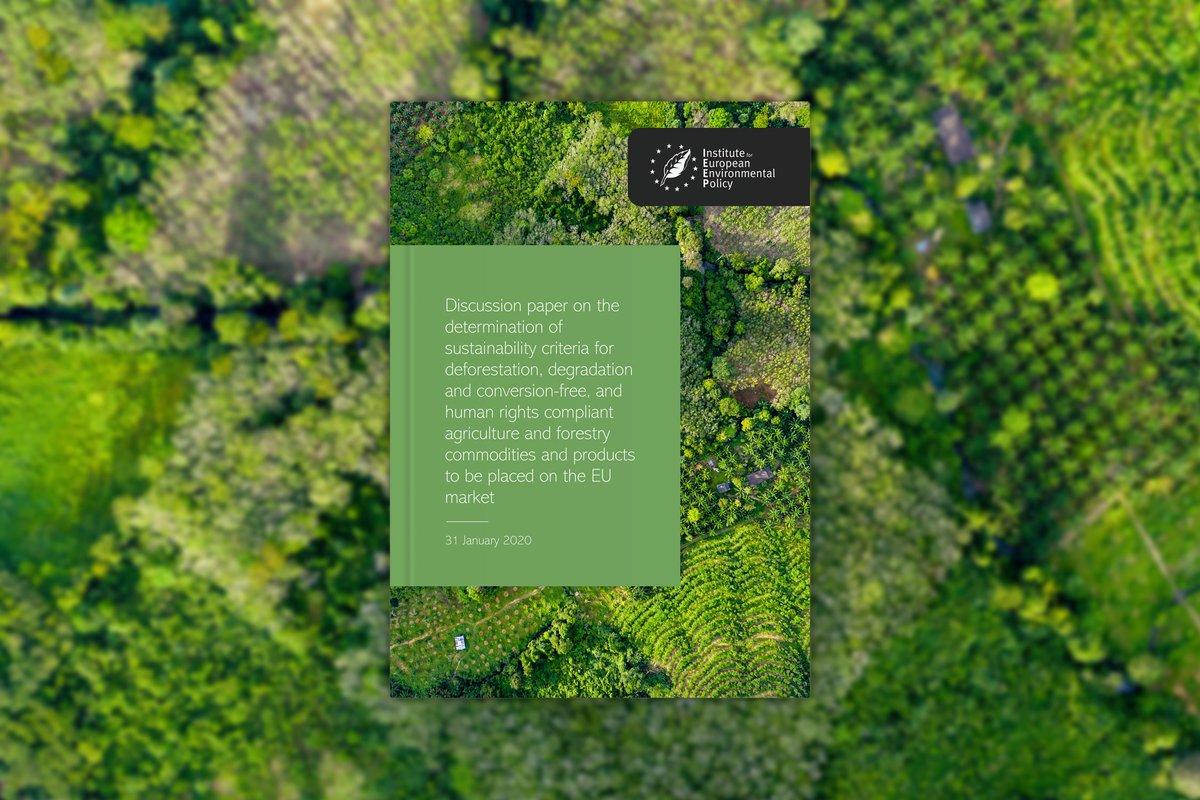AUTHORS: Silvia Nanni – Ben Allen – Rachael Treharne – Stephen Meredith – Catherine Bowyer
In view of the future European Commission’s assessment of both regulatory and non-regulatory measures to address deforestation and forest degradation, IEEP has designed sustainability criteria to ensure that Europe is part of the solution. This discussion paper identifies two sets of sustainability criteria that, to be effective in implementation, are recommended to be incorporated in binding instruments under EU law.
Given that the sustainability criteria are focused on the land-use impacts of the production, they are applicable to a wide set of agricultural and forest commodities placed on the EU market, including cocoa, soy, maize, palm oil, rubber, beef, dairy and poultry.
Criteria related to deforestation, ecosystem conversion and degradation
| Agricultural and forest commodities placed on the EU market shall not be produced from land that had the following status in [date] and has been converted to agricultural land since this time: Forest land – [definition]¹Natural ecosystems – [definition]Agricultural and forest commodities placed on the EU market shall not be [produced] from land that had the following status in [date] and still has that status, except where the commodity can be produced and harvested in compliance with conservation objectives and does not lead to the loss or degradation of ecosystem functions on or adjacent to this land:Forest land – [definition]Semi-natural ecosystems – [definition] |
Criteria related to human rights
| The production of agricultural and forest commodities respects land tenure rights of all forms: public, private, communal, collective, indigenous, women and customary;The production of agricultural and forest commodities respects the rights of local communities and indigenous peoples to use land and resources, whether those use rights are public, private, communal, collective, indigenous, women or customary;Prior to any production of agricultural and forest commodities that may affect the rights of local communities and/or indigenous peoples on the lands, forest and resources that they customarily own, live on or use, their free, prior and informed consent shall be obtained;All members of an affected local community or indigenous people shall have an opportunity to participate in the decision to grant, or not grant, FPIC, including women, youth, elderly and other marginalised groups. Local communities and indigenous peoples affected by the production of agricultural and forest commodities shall have access to a dispute resolution mechanism;Agriculture and forest commodities placed on the EU market shall be sourced and produced in accordance with and respect to the internationally-recognised rights of workers and national norms on labour in the country of production recognised by the Universal Declaration on Human Rights and International Labour Organisation (ILO) fundamental Conventions. |
To ensure the implementation of such criteria, it is crucial to have in place a solid chain of custody and full traceability of international supply chains.
Tracking tools, including Transparent Supply Chains for Sustainable Economies (TRASE, 2015) and Global Forest Watch (GFW, 2019), can help make this ambition a reality.
Besides having legally binding sustainability criteria, the European Commission should also consider that a future EU regulatory framework addressing deforestation, ecosystem degradation and human rights violations should:
- Ensure coherent coverage of all key commodities (regardless of their use) placed on the EU market linked to deforestation and forest degradation;
- Provide clarity in relation to the appropriate definitions of deforestation, forest degradation and ecosystem conversion and the evidence that can be used to support this to ensure validity and continuity of claims and ensure a level playing field in the market place;
- Provide clarity in relation to the appropriate base year according to which land should not have been converted or deforested as a result of the production of a commodity, for this to be placed on the EU market.
For more information on IEEP’s work on this area, please contact Ben Allen (ballen@ieep.eu).
___
[1] Square brackets [ ] above show where a decision by the EC should be made with respect of the specifics of the criteria, such as the base year or the definition used.

